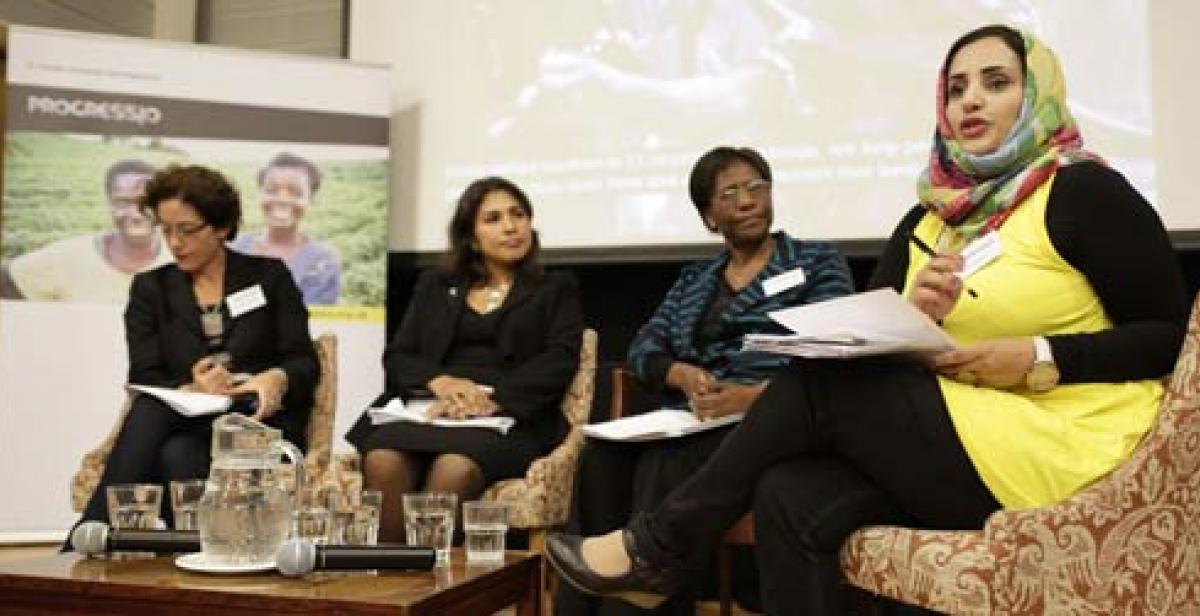Progressio's recent event Fragile States, Phenomenal Women, held on Wednesday 11 September 2013, was compelling. All all-female panel chaired by Associate Editor of The Guardian, Madeleine Bunting, captivated those assembled with inspirational accounts of 'women champions' who are challenging injustice and claiming their rights in some of the world's toughest environments.
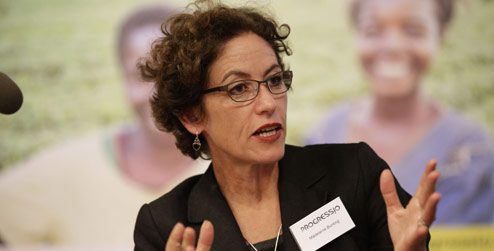
Madeleine Bunting opened the discussion by highlighting the crucial role that women have to play, particularly in fragile states: "Wherever there is instability and violence and deprivation, women are particularly affected. As a journalist writing about these issues, I’ve seen a dramatic shift where gender is now recognised as the absolute key to improving the lives of children, families, communities. Issues like environmental management – there's a whole raft of issues to which women are absolutely central."
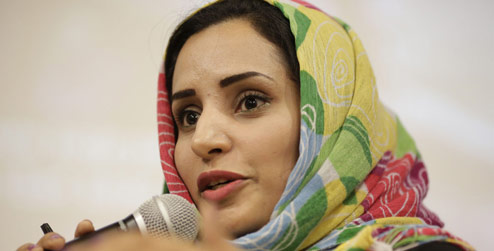
Abeer al Absi, Progressio Country Representative in Yemen explained what people living in her country mean when they describe it as a 'fragile state' saying:
"People in Yemen are themselves really aware that their country is really fragile. Their concept of fragile is the lack of rule of law, corruption, lack of transparency, lack of public services. That’s why Yemeni people have taken to the streets to demand for change, and it was really fantastic that women already were there, demanding for change."
Abeer described how Progressio is working with women's organisations to try to build the capacity of women so that they can really voice their needs. She gave the example of how Progressio has been working with faith communities to change their attitudes towards early marriage:
"In Yemen early marriage is a big issue. Because of poverty, families can’t feed all their kids and they are selling their girls into marriage," she explained. "So we selected women for training by our development workers to really advocate for their own rights. These are not educated women but they are really becoming ‘women champions’. Now there is a proposed law to prevent early marriage. Women actors are really struggling to get this into the constitution, they are pushing for it to be on the agenda. One of the women champions collected 3,000 signatures to call for this law. So, you can say we live in a fragile state, but we are not fragile people."
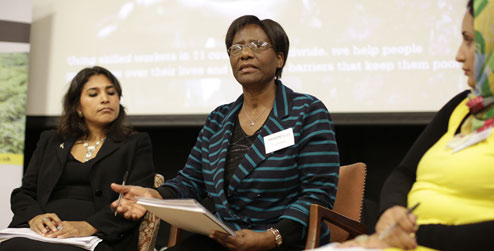
The resilience of women living in Zimbabwe was also highlighted by Fiona Mwashita, Progressio's Regional Manager for Southern Africa.
"Progressio is working to empower women, so that at the end of the day they advocate for their own issues," she said. "Once they have the knowledge, they are aware of their rights, they are then able to do something about their own lives. If you are living in a ‘fragile state’ it doesn’t necessarily mean that you are helpless. There is a lot of resilience among the women in Zimbabwe. But for you to move forward, you need to have a base for your actions. You need to have knowledge about gender issues and to understand the cultural issues that promote gender disparities."
Fiona explained how Progressio's partners in Zimbabwe are working on issues of gender based violence, on trying to eradicate stigma and discrimination for people living with HIV, and on promoting the rights of women and youth to participate in exercising their rights to elect the political leaders they want and hold them accountable. She also explained the importance of working with faith leaders and women's networks:
"One of the critical partners we are working with is the Catholic Commission for Justice and Peace. Why are we working with them? It’s mainly because, as a church organisation, they are sort of neutral. As a result they are free to go to the community and work with anyone within that community.
"We are also working with women’s organisation. One such organisation is the Zimbabwe Women’s Resource Centre and Network. This organisation has been working with women and parliamentarians, with women and youth at the grassroots level, at district level, at provincial level and at national level. They have been doing that so that they are able to hold their leaders accountable."
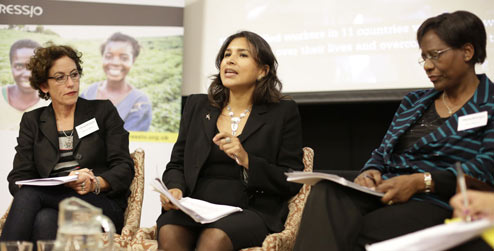
Lizzette Robleto, Progressio's Policy Officer, drew attention to the commonalities that can be drawn with women's experiences in the UK and paid tribute to the "extreme resilience", "will to survive", and inspirational dedication demonstrated by women living in fragile states to produce their own livelihoods and organise themselves to bring about changes.
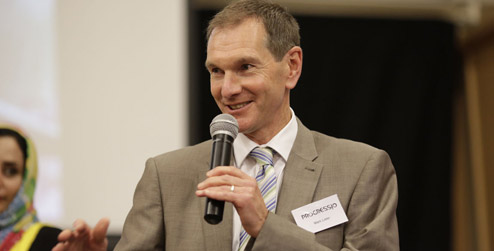
Progressio's Chief Executive, Mark Lister, drew the evening to a close by acknowledging that "the challenges that women face in the countries where Progressio works are multiple and complex". He challenged those assembled to stand in solidarity with phenomenal women all over the world who are working at local, national and international levels to achieve progress in their own lives saying:
"The future is being shaped by people in their own countries. What we can do is stand alongside in solidarity, we can offer support, we can learn. I've learnt so much tonight. The best thanks that we can give our panellists is to do more to support, financially, the long term investment that Progressio can offer for young people and for all generations. If you can do more to join the campaigning when we've got those moments when we really need to challenge unjust power structures, locally, nationally and internationally, those are two really important ways that I can ask you to continue to be engaged, alongside your learning. That would be the best thanks we can give."
This event was preceded by Progressio's Annual General Meeting. To find out more about the impact of Progressio's work on the ground take a look at the 2013 Annual Review.
Photos: Layton Thompson/Progressio 2013
1. Madeleine Bunting opens discussion on Fragile States, Phenomenal Women.
2. Abeer Al Absi gives her perspective speaking as a Yemeni woman and as Progressio Country Representative for Yemen.
3. Fiona Mwashita, Progressio's Southern Africa Regional Manager based in Zimbabwe, explains the situation facing women in Zimbabwe and how Progressio's work is supporting women's empowerment.
4. Lizzette Robleto, Progressio's Policy and Advocacy Officer on Governance and Sustainable Environment, offers a UK perspective on women's rights.
5. Mark Lister, Progressio Chief Executive, closes discussion and encourages those gathered to show their support for phenomenal women living in fragile states.


